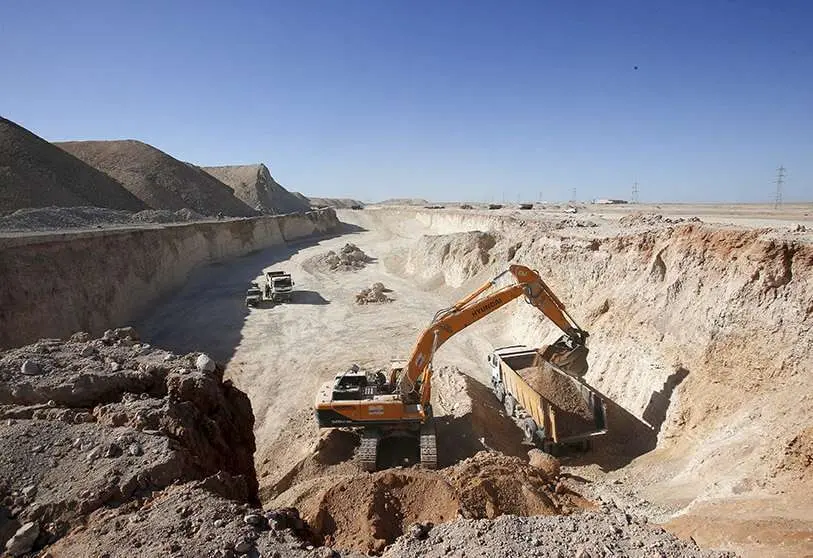Descubren en Marruecos un importante yacimiento de litio

Morocco announces one of the most important discoveries of the last year. Explorers have discovered an important lithium deposit near the border with Mauritania. It is a deposit that, at the first glimpse of the cavity, scientists have declared that the Kingdom may now possess significant quantities of this metal.
This discovery is very good news for the Alawite kingdom. If the amount of lithium is remarkably sufficient, it could allow it to become independent of this resource. Morocco would no longer need to import the metal, most of which is widely used for technological devices.
It could also strengthen the renewable energy sector. Many of the materials used in the manufacture of solar, wind and other plants incorporate lithium to make them work. Morocco is a leader in the creation of sustainable projects, and in recent years, one of its strategies has been the fight against climate change.

As a result, the country has armoured itself with environmentally friendly installations. This allows them to generate less carbon emissions that seriously damage the atmosphere and the planet's temperature. Green projects also help them to reduce their energy mix and therefore rely less on other, more expensive energy sources that affect the planet.
Physicochemist Rachid Yazami confirms that this is possible. As the inventor of lithium-ion batteries, he is an expert in the field. In his own words: "The exploitation of this treasure could boost the dynamics of the energy transition initiated by the Kingdom at a time when the rise of the electric vehicle industry is fuelling a significant increase in the global demand for lithium and cobalt".
Lithium and cobalt are experiencing growing demand and Morocco is seizing the opportunity. The North African nation has begun to exploit the electric car business, and, in the last year, production is growing significantly, as are campaigns to switch to electric cars and leave petrol vehicles behind.

Thanks to the resources and knowledge in this area, the country can begin to develop the lithium industry. What matters most is the independence it can generate, as the price of lithium has been rising steadily in recent years, with the exception of 2020 due to the health crisis. Ten years ago, in the deals that were being done, the price of the metal ranged from less than 4,500 dollars. From 2017 onwards, costs exceeded $12,000. Today, prices are around $80,000.
The General Assembly of the European Bank for Reconstruction and Development held a meeting in Marrakech a few days ago where the issue of lithium was raised. Yazami confirmed that the deposit is great news and that, in addition, Morocco will benefit and be boosted as one of the world's major producers in terms of renewable energy.
Several countries have already emerged from this meeting interested in the subject and have begun to search for the metal with drilling operations in some territories. The scientist confirms that even Saudi Arabia has sent him an invitation to help with the research and contribute to exploring the possibility of extracting lithium.

Lithium, also known by experts in the field as "white gold", is one of the minerals that will play an important role in the future. Its use is very common in technological elements, such as electric batteries and batteries. At the rate the planet is moving, these are expected to develop much further and therefore the metal will become richer. Recent advances in technology in recent years have been key to the boom in the material, which has doubled in demand and between 2016 and 2020 will produce more than 82,000 tonnes. Among the countries with the most lithium are Argentina, Chile, China, Australia, the United States, Brazil, Portugal and Zimbabwe.








